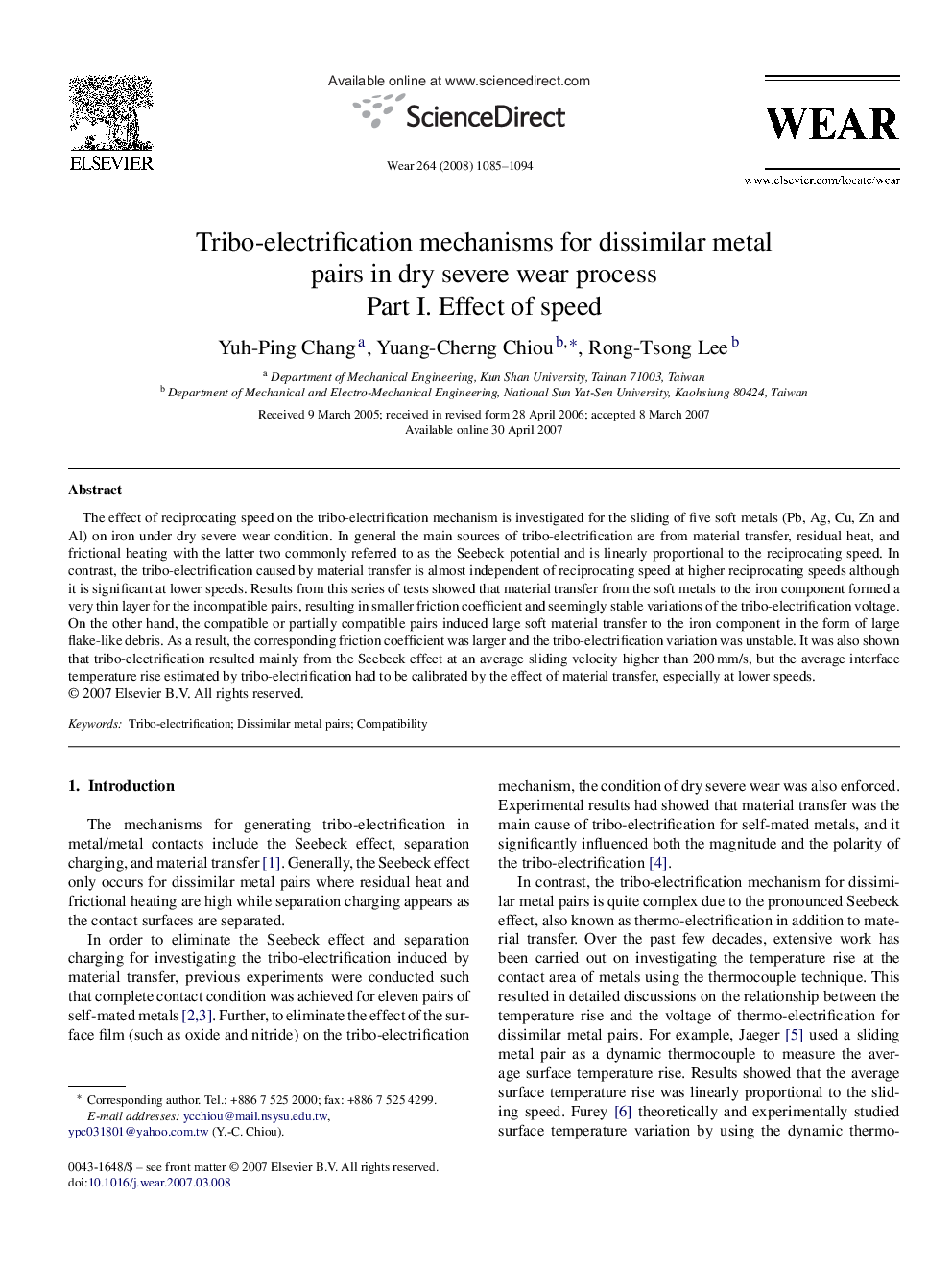| Article ID | Journal | Published Year | Pages | File Type |
|---|---|---|---|---|
| 619681 | Wear | 2008 | 10 Pages |
The effect of reciprocating speed on the tribo-electrification mechanism is investigated for the sliding of five soft metals (Pb, Ag, Cu, Zn and Al) on iron under dry severe wear condition. In general the main sources of tribo-electrification are from material transfer, residual heat, and frictional heating with the latter two commonly referred to as the Seebeck potential and is linearly proportional to the reciprocating speed. In contrast, the tribo-electrification caused by material transfer is almost independent of reciprocating speed at higher reciprocating speeds although it is significant at lower speeds. Results from this series of tests showed that material transfer from the soft metals to the iron component formed a very thin layer for the incompatible pairs, resulting in smaller friction coefficient and seemingly stable variations of the tribo-electrification voltage. On the other hand, the compatible or partially compatible pairs induced large soft material transfer to the iron component in the form of large flake-like debris. As a result, the corresponding friction coefficient was larger and the tribo-electrification variation was unstable. It was also shown that tribo-electrification resulted mainly from the Seebeck effect at an average sliding velocity higher than 200 mm/s, but the average interface temperature rise estimated by tribo-electrification had to be calibrated by the effect of material transfer, especially at lower speeds.
